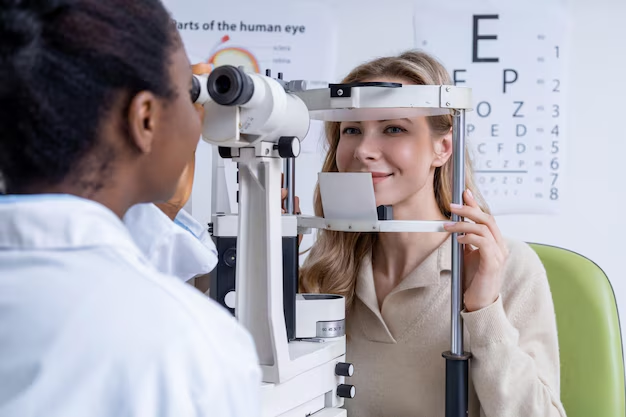Considering LASIK After Cataract Surgery: What You Need to Know
Getting a prescription from your eye doctor used to involve paper slips, squinting tests, and a new pair of glasses. Fast forward to today, and advances like cataract surgery and LASIK have revolutionized how we manage our vision. However, as people live longer, questions arise about the order and type of surgeries one can undertake for continued improvement in eyesight. One question becomes particularly pertinent: Can you get LASIK after cataract surgery? Understanding this issue involves multiple angles, including the procedures involved, their compatibility, and the potential benefits and risks.
Understanding the Basics: LASIK and Cataract Surgery
To fully grasp the possibilities and limitations of undergoing LASIK after cataract surgery, it’s essential to understand what each procedure entails.
What is Cataract Surgery?
Cataract surgery is a common and typically safe procedure aimed at removing a clouded lens from the eye and replacing it with an artificial lens. This surgery is necessary when the natural lens becomes opaque, leading to blurred vision, glare, and impaired sight. By replacing the cloudy lens with a clear artificial lens, most patients experience improved vision, often with reduced dependence on glasses or contact lenses.
What is LASIK?
LASIK (Laser-Assisted In Situ Keratomileusis) is a type of refractive surgery that aims to correct vision problems such as myopia (nearsightedness), hyperopia (farsightedness), and astigmatism. It involves reshaping the cornea using a laser, allowing light entering the eye to be precisely focused onto the retina for clearer vision. Patients often choose LASIK to reduce or eliminate the need for glasses or contact lenses.
Can You Really Have LASIK After Cataract Surgery?
The short answer is yes, it is possible for some individuals to undergo LASIK after cataract surgery. However, the suitability of LASIK in this context depends on several factors:
Factors Influencing Eligibility
Stability of Vision: After cataract surgery, it is crucial for a patient's vision to stabilize. Rapid fluctuations in vision or changes in eyeglass prescription could impact the success of LASIK surgery.
Corneal Thickness: LASIK requires sufficient corneal thickness to allow the reshaping necessary for vision correction. If the cornea is too thin post-cataract surgery, LASIK might not be viable.
Overall Eye Health: The general health of the eye, including conditions like dry eye syndrome or infections, can impact the outcome of LASIK.
Existing Eye Conditions: Other eye health issues, like glaucoma or retinal problems, might also affect the ability to have LASIK post-cataract surgery.
Potential Benefits
- Refined Vision: LASIK can fine-tune vision post-cataract surgery, potentially reducing reliance on corrective lenses.
- Improved Quality of Life: Achieving sharper vision can enhance daily activities, driving, and sports play.
Potential Risks
- Complications: As with any surgery, there can be risks, including dry eyes, glare, or even diminished vision.
- Complex Recovery: Managing a secondary surgery requires monitoring and a commitment to follow-up care and time for recovery.
Alternatives to LASIK After Cataract Surgery
If LASIK isn’t suitable following cataract surgery, there are other options available to enhance vision quality.
PRK (Photorefractive Keratectomy)
Like LASIK, PRK reshapes the cornea but does so without creating a corneal flap. This might be a viable option for those with thinner corneas.
Contact Lenses
Specialized contact lenses can adjust vision post-cataract surgery and offer another route for those unable to have LASIK.
Lens Exchange
Sometimes, the artificial lens implant from cataract surgery can be exchanged for a lens with different characteristics to match vision needs better.
Navigating the Decision-Making Process
Deciding on a secondary surgery is significant, and it should be approached with due diligence.
Consultation with an Eye Care Specialist
An initial consultation with an eye care specialist can offer insights into your eligibility for LASIK post-cataract surgery. The specialist can guide patients through diagnostic tests and assessments to make an informed decision.
Lifestyle Considerations
Consider your lifestyle needs—do you drive at night or participate in sports? Different activities might require specific visual capabilities. Assess if the outcomes of further surgeries align with your lifestyle goals.
Financial Considerations
Both cataract surgery and LASIK can come with a significant price tag. While cataract surgery is often covered by insurance, LASIK may not be. It's essential to verify coverage and explore options like payment plans or medical financing.
Conclusion: Weighing Your Options
Navigating the world of ophthalmic surgeries can feel overwhelming, but staying informed and consulting with professionals can dispel anxieties and clarify the options. A transparent conversation with an eye care specialist about your visual expectations, medical history, and lifestyle can illuminate the most appropriate path forward. Ultimately, the choice to undergo LASIK after cataract surgery should be personalized and well-informed.
Summary of Key Points:
- 👁️ Cataract Surgery involves replacing the cloudy lens with an artificial one, usually improving vision.
- 🔍 LASIK Surgery reshapes the cornea to refine vision and reduce reliance on corrective lenses.
- ✔️ Eligibility for post-cataract LASIK depends on vision stability, corneal thickness, and overall eye health.
- 🛡️ Alternative Options include PRK surgery, specialized contact lenses, or lens exchange.
- 🏥 Consult an Eye Specialist to assess your suitability and explore the best-suited paths for clearer vision.
- 💲 Consider Financial Aspects, including insurance coverage and out-of-pocket costs for elective procedures.
Understanding your options can empower you to decide confidently, knowing you are making the best choice for your vision and quality of life.

Related Articles
- Are Cataracts Curable
- Are Cataracts Genetic
- Are Cataracts Hereditary
- Are Cataracts Nuclear Sclerosis
- Are Cataracts Painful
- Are Ivizia Eye Drops Okay After Cataract Surgery
- Are You Awake During Cataract Surgery
- Are You Awake For Cataract Surgery
- Are You Put To Sleep For Cataract Surgery
- Are You Sedated For Cataract Surgery
